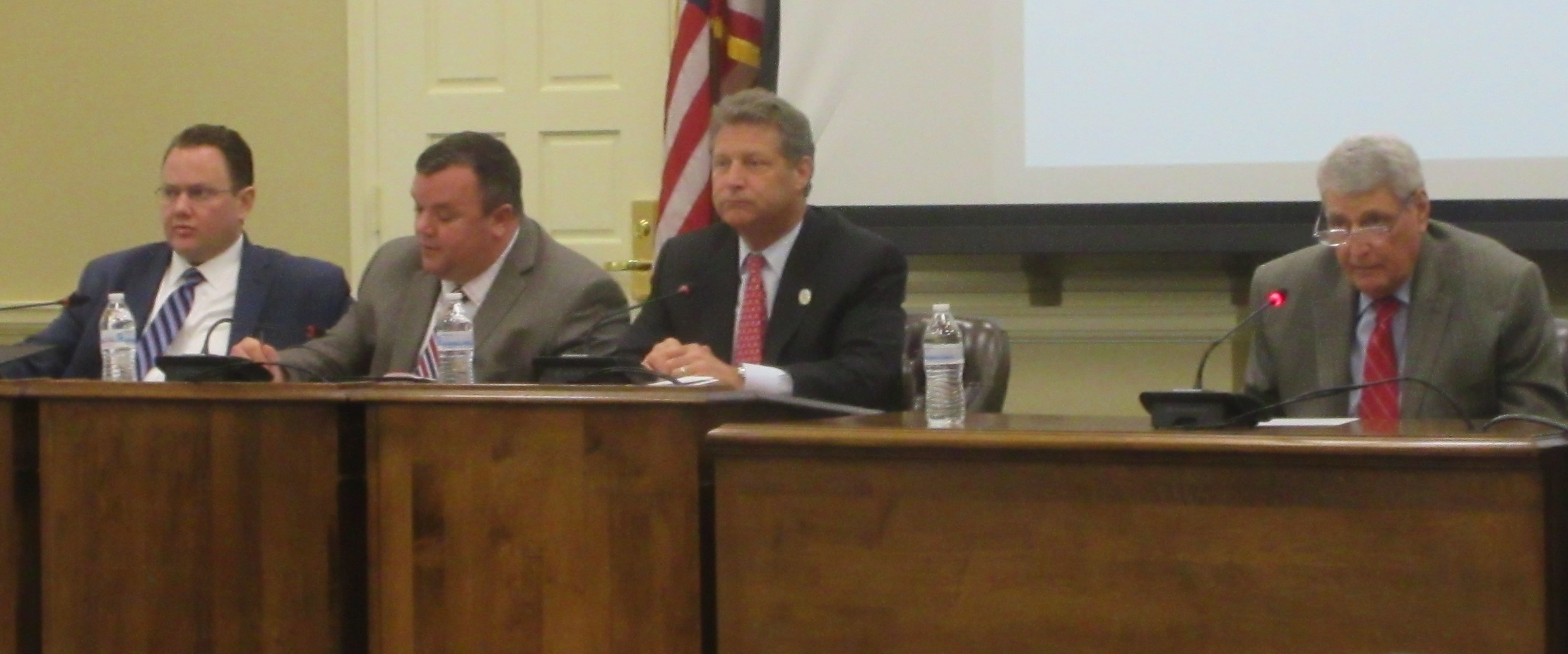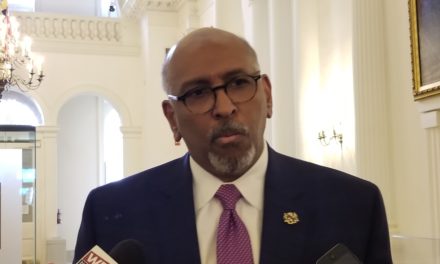@BryanRenbaum
Rep. Jamie Raskin (D-Md.) teamed up with House Speaker Nancy Pelosi (D-Calif.) on Friday to introduce legislation that would establish a commission to determine presidential capacity.
The legislation comes one week after President Donald Trump announced that he and First Lady Melania Trump had tested positive for COVID-19. The president spent last weekend at Walter Reed National Medical Center in Bethesda, Md. where he was treated with steroids and experimental drugs not available to the general public. Trump has since returned to the White House and has signaled that he is ready to return to the campaign trail. Trump has said that he does not feel sick and has refuted suggestions that he might be concealing the extent of his illness.
“In the age of COVID-19, which has killed more than 210,000 Americans, and has now ravaged the White House staff, the wisdom of the 25th Amendment is clear,” Raskin said at a news conference on Capitol Hill. “What happens if a president, any president-ends up in a coma or on a ventilator and has made no provisions for the temporary transfer of power under Section 3? Who has the power of the presidency at that point? Is it the vice president? Is it the secretary of state? This situation is what demands action under Section 4.”
Raskin, a former American University constitutional law professor, said Congress should have set up a commission to determine presidential capacity in atypical situations in 1967 when the 25th amendment was adopted. Raskin said lawmakers should make the creation of such a commission a priority in the next Congress, which convenes in January 2021.
Under the legislation, the commission would consist of 16 members-not including the chair. Half of the members would be chosen by Democrats and half would be chosen by Republicans. Half would consist of medical personnel and half would consist of former high-ranking executive branch employees. The commission would only be able to act in consultation with the vice-president.
Raskin explained how the process would work.
“The legislation sets up a process by which Congress through concurrent votes in the House and the Senate could direct the commission to conduct a medical exam of the president. And that would include whatever the members of the commission think is necessary to determine whether or not there is an incapacity. If the president refuses.. that could be taken into account by the commission which would have to rule based on all of the other evidence that it has.”
Pelosi, who last year presided over the impeachment of Trump, insisted that the legislation does not specifically target the president.
“This is not about President Trump. He will face the judgment of the voters, but he shows the need for us to create a process for future presidents.”
Pelosi later reiterated that point.
“This isn’t about any judgment anybody has about somebody’s behavior. This is about a diagnosis, a professional medical diagnosis. This is not with bad intent.”
Trump mocked Pelosi in a tweet following Friday’s news conference.
Crazy Nancy Pelosi is looking at the 25th Amendment in order to replace Joe Biden with Kamala Harris. The Dems want that to happen fast because Sleepy Joe is out of it!!!
— Donald J. Trump (@realDonaldTrump) October 9, 2020
The 25th Amendment lays out the process for presidential and vice-presidential succession in cases of death, resignation, removal, and incapacitation.
Raskin has served in Congress since 2017. He represents the 8th district.







Recent Comments